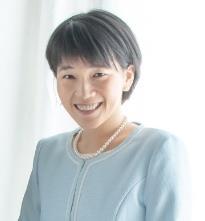
For Humber College, COVID-19-related travel bans haven’t translated into a lack global opportunities - all that has changed is the approach.
Since March, when social isolation and quarantine measures were put in place, Humber has developed programs and initiatives that allow students to study internationally from home.
“As the world expands and becomes more interconnected, there is a need for graduates who can work in cross-cultural environments. Organizations are seeking students who are global citizens, have intercultural communication experience, virtual teamwork, and critical thinking skills,” said Rebecca Fitzgerald, associate director, International Mobility and Strategic Partnerships.
For the past few months, 23 students from various Humber faculties are participating in the Intercultural Exchange Program created and hosted by Kansai Gaidai University in Japan. Their participation in the program, which includes several other international institutions, will earn them an elective credit recognized by Humber.
Five students from the Humber group were elected to plan activities like cultural home visits, debate nights and discussions focusing on language skills for the students taking part during the semester. Second-year Bachelor of Commerce – Accounting student Connor Heward was pleased to be selected and to share his expertise alongside his international peers.
“What attracted me to this program was the fact that it would provide a different learning experience. I’m learning about other cultures and creating lasting bonds with other students,” he said.
“The intercultural program will definitely benefit my future.”
The program has attracted 12,000 Japanese students and 400 international students from 22 different countries.
Facing the challenges of the future
Kansai Gaidai’s intention for the Intercultural Exchange Program was to offer a virtual exchange opportunity for students in Japan and abroad.
The university created the program to help students develop cross-cultural understanding, gain effective communication skills and, most importantly, to strengthen their project management and leadership skills.
“The program is entirely student-driven and the groups of project managers and team leaders all consist of multicultural members,” said Kayoko Ochi, executive project coordinator at Kansai Gaidai University. 
In addition to the peer-guided intercultural learning, students have been challenged by the logistics of the program, which has further prepared them for situations they may face while working cross-culturally.
They have grappled with time differences and technical issues, common difficulties in an international workplace.
“Through coping with these unprecedented challenges, students are developing creative and innovative minds, flexible attitudes and deeper understanding of different values and ways of thinking,” said Ochi.
“We told the students that every single process is a learning opportunity.”
Humber College’s participation in projects like the Intercultural Exchange Program will continue whether COVID-19 travel restrictions are lifted or not.
The model is more inclusive than physical exchanges, since it is more accessible, both financially and physically, and it allows students to complete course requirements at home. Programs like the one at Kansai Gaidai expose students to a world of possibilities.
“By sharing experiences and building community with peers around the world, our students are prepared for a digitally connected global society that will last far beyond COVID-19,” said Fitzgerald.
To learn more about Humber’s international opportunities, visit Humber.ca/global-opportunities
